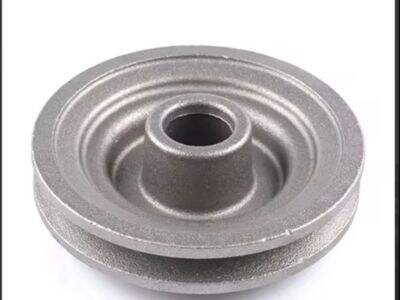Qu'est-ce que la fonte grise ?
LF est un fabricant de produits en métal pour une large gamme d'industries. Un type particulier de métal qu'ils utilisent est connu sous le nom de fonte grise. La fonte grise est l'une des nombreuses sortes de métaux utilisés dans les usines et autres environnements de travail industriels. Il est très important de comprendre que la fonte grise diffère des autres métaux. Cette connaissance permet aux entreprises de choisir le matériau approprié pour différents projets ou besoins.
Fonte grise : avantages et inconvénients
Le fonte grise présente plusieurs avantages qui la rendent idéale pour certaines applications. De tels filets en plastique ont un grand avantage : lorsqu'ils se réchauffent, ils deviennent très malléables. Cela signifie qu'elle peut être modelée en configurations et formes complexes qui conviennent bien à la création de divers produits. La fonte grise possède également une grande résistance à la traction et peut supporter des pressions élevées, ce qui la rend idéale pour les applications lourdes. Cependant, il est important de noter quelques faiblesses. Par exemple, fonte grise elle est fragile, donc elle peut se fissurer facilement si elle est frappée avec force. Elle n'est pas aussi résistante aux chocs que des métaux comme l'acier, qui peuvent absorber plus d'énergie lors d'une collision. Les fontes grises se cassent sous une forte contrainte, ce qui les rend inadaptées pour les travaux impliquant de fortes vibrations ou mouvements.
La Fonte Grise dans les Usines : Comment Ça Marche ?
Le fonte grise est un matériau largement utilisé dans de nombreuses usines car il est solide et facile à fabriquer. Un autre avantage réside dans le fait qu'il est relativement bon marché parmi les différents types de métaux disponibles sur le marché. Cela en fait une solution très viable et abordable pour les entreprises cherchant à réduire leurs coûts. Malgré cela, le fonte grise présente quelques inconvénients qui doivent être pris en compte. Par exemple, en présence d'humidité et de conditions extrêmes, elle ne résiste pas bien à la rouille. La rouille peut se former sur fonte nodulaire au fil du temps, et elle peut provoquer la dégradation du métal, entraînant finalement son échec dans des environnements hostiles. Cela la rend moins adaptée pour les applications où la corrosion est une préoccupation majeure.
Fonte grise vs autres métaux
Les métaux industriels sont également renforcés lorsque les entreprises doivent décider quel matériau utiliser dans leurs chaînes de montage, ce qui rend la comparaison analytique essentielle. Dans de nombreux cas d'utilisation, vous pouvez simplement opter pour un métal différent plutôt que le gris fonderie de fonte pour de meilleurs résultats, une performance ou encore une durée de vie plus longue. En fait, l'acier est bien plus résistant que la fonte grise et a moins de chances de se casser s'il est soumis à un stress considérable. Cela signifie que l'acier est un choix plus solide pour toute application qui repose sur le poids. Pour les applications nécessitant une haute résistance à la corrosion, l'acier inoxydable est également une excellente option. Il résiste à la rouille, ce qui le rend adapté aux environnements humides ou riches en produits chimiques. L'aluminium, en revanche, est un métal léger avec un excellent rapport solidité-poids. Il est solide, mais pas trop lourd, ce qui lui permet d'être excellent pour des projets plus légers.

 EN
EN
 CS
CS
 DA
DA
 NL
NL
 FI
FI
 FR
FR
 DE
DE
 EL
EL
 IT
IT
 JA
JA
 KO
KO
 PL
PL
 PT
PT
 RU
RU
 ES
ES
 TL
TL
 ET
ET
 TH
TH
 MS
MS



